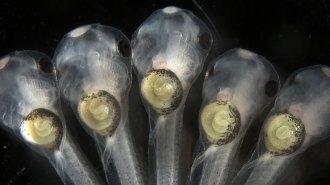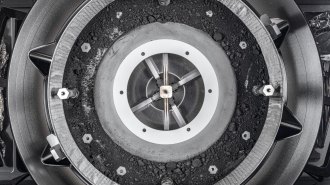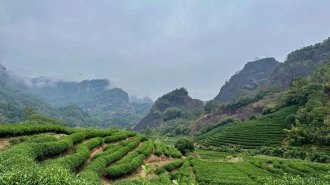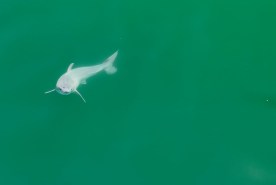News
-
 Physics
PhysicsPhysicist Sekazi Mtingwa considers himself an apostle of science
After big contributions in accelerator physics, Sekazi Mtingwa has been focused on opening science for everyone.
By Elise Cutts -
 Health & Medicine
Health & MedicineMessed-up metabolism during development may lead guts to coil the wrong way
Tadpoles exposed to a metabolism-disrupting herbicide had malformed intestines, providing clues to a human condition called intestinal malrotation.
-
 Science & Society
Science & SocietySocial media harms teens’ mental health, mounting evidence shows. What now?
Recent studies suggest a causal link between teen social media use and reduced well-being. Now, some researchers are looking into possible mechanisms.
By Sujata Gupta -
 Health & Medicine
Health & MedicineTaking a weight-loss drug reduced a craving for opioids
Early results from 20 people with opioid use disorder raise hopes that popular weight-loss drugs like Wegovy can tackle opioid addiction, too.
-
 Physics
PhysicsHere’s how scientists reached nuclear fusion ‘ignition’ for the first time
The first fusion experiment to produce an energy excess required meticulous planning and also revealed a long-predicted heating phenomenon.
-
 Neuroscience
NeuroscienceAncient viruses helped speedy nerves evolve
A retrovirus embedded in the DNA of some vertebrates helps turn on production of a protein needed to insulate nerve cells, aiding speedy thoughts.
-
 Planetary Science
Planetary ScienceNASA’s OSIRIS-REx nabbed over 120 grams of space rocks from asteroid Bennu
After being stymied by two stuck screws, NASA finally accessed a trove of Bennu asteroid bits. Mission scientist Harold Connolly tells what’s next.
By Adam Mann -
 Agriculture
AgricultureMixing up root microbes can boost tea’s flavor
Inoculating tea plant roots with nitrogen-metabolizing bacteria enhances synthesis of theanine, an amino acid that gives tea its savoriness.
By Nikk Ogasa -
 Health & Medicine
Health & MedicineNewfound immune cells are responsible for long-lasting allergies
A specialized type of immune cell appears primed to make the type of antibodies that lead to allergies, two research groups report.
-
 Archaeology
ArchaeologyThese South American cave paintings reveal a surprisingly old tradition
Radiocarbon dates point to an artistic design practice that began in Patagonia almost 8,200 years ago, several millennia earlier than previously recorded.
By Bruce Bower -
 Agriculture
AgricultureCould a rice-meat hybrid be what’s for dinner?
A hybrid food that combines rice, animal cells and fish gelatin could one day be a more sustainable way to produce meat.
By Meghan Rosen -
 Animals
AnimalsDoes this drone image show a newborn white shark? Experts aren’t sure
If a claim of the first-ever sighting of a newborn white shark holds, it could help solve a mystery of where adult white sharks give birth.